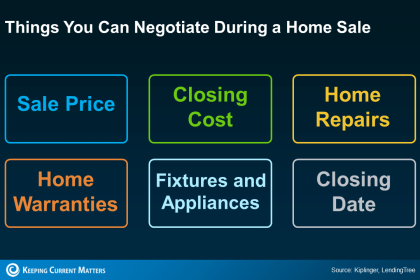If you’ve been anywhere near the property pages, financial news, or a conversation with a real estate agent lately, you’ve likely heard the phrase: “Date the Rate, Marry the House.”
- What Does “Date the Rate, Marry the House” Actually Mean?
- The “Pro” Argument: Why This Advice Can Be Brilliant
- The “Con” Argument: The Crucial Caveats and Why It Could Be Dangerous
- Live Market Pulse: The Australian Reality Check –
- The Strategic Blueprint: How to “Date” and “Marry” Wisely
- Beyond Residential: What About “Date the Rate, Marry the Asset” in Commercial Real Estate?
- Regional Spotlight: How This Advice Plays Out Across Australia
- The Final Verdict: To Date or Not to Date?
- Conclusion: Your Home, Your Rules
It’s a pithy, almost poetic piece of advice that has become a mantra for buyers and real estate agents navigating the turbulent waters of rising interest rates. But what does it really mean? And more importantly, is this clever slogan a golden ticket to your dream home or a one-way trip to financial stress?
As a veteran observer of the real estate landscape, from the bustling hubs of real estate Sydney to the sun-drenched properties of real estate Perth, I’m here to give you the unvarnished truth. This isn’t just a catchy phrase; it’s a strategy with profound implications. In this deep dive, we’ll dissect this advice, explore its wisdom and its warnings, and equip you with the live data and strategic insight you need to make an empowered decision.
Let’s pull back the curtain on “Date the Rate, Marry the House.”
What Does “Date the Rate, Marry the House” Actually Mean?
At its core, this philosophy is about prioritization. It urges homebuyers to separate two key variables in the home-buying equation:
- The House (The “Marriage”): This is the long-term commitment. It’s the property’s location, its layout, its land size, its potential, and its emotional resonance. The “marriage” is the belief that you are buying a home you can see yourself in for a decade or more, a place that will grow with your family and stand the test of time.
- The Interest Rate (The “Date”): This is the short-term, and hopefully, temporary condition. The advice posits that you should not let a high mortgage interest rate deter you from buying your perfect home. You are merely “dating” this current rate, with the expectation that in the future, you can refinance to a lower rate when the economic climate improves.
The underlying assumption is that while real estate for sale today comes with high financing costs, those costs are mutable. The fundamental value of the property—the house you “marry”—is permanent (or, historically, appreciates).
This mindset has been a powerful psychological tool for real estate agents at agencies like Ray White and Professionals Real Estate to keep buyers in the game, especially when headlines scream about soaring rates. But is it that simple? Let’s weigh the pros and cons.
The “Pro” Argument: Why This Advice Can Be Brilliant
In many market conditions, this is not just good advice; it’s great advice. Here’s why the “Date the Rate” philosophy holds significant merit.
1. It Focuses on the Long Game
Successful real estate investing has always been a marathon, not a sprint. By focusing on a home’s long-term potential—be it in the family-friendly suburbs of real estate Brisbane or the investment hotspots of real estate Victoria—you’re aligning your actions with a proven wealth-building strategy. You’re buying an asset, not just a monthly payment.
2. It Acknowledges the Cyclical Nature of Rates
Interest rates are cyclical. The Reserve Bank’s cash rate goes up, and it comes down. We have decades of economic data to prove this. Getting locked out of the property market because of a high-rate environment can mean missing out on a good purchase price on the house itself. When rates eventually fall, property prices often rise as buying power increases. Buying at a higher rate but a lower purchase price can sometimes be a smarter financial move.
3. It Prevents “Analysis Paralysis”
The search for the perfect home at the perfect time with the perfect rate is a fool’s errand. It leads to endless scrolling on Domain real estate, missed opportunities, and regret. The “Marry the House” part forces you to define what you truly need in a home. Is it the school catchment in real estate NSW? The proximity to work in Melbourne real estate? The views in real estate Kiama? By solidifying your “non-negotiables,” you can act decisively when you find a property that ticks those boxes.
4. It Empowers You with Refinancing Strategy
This advice inherently builds in a future financial strategy: refinancing. It forces you to think ahead. When you “date the rate,” you are making a conscious plan to monitor the market and pounce when conditions are right to switch to a lower rate, potentially saving you tens of thousands over the life of the loan. This proactive approach is a cornerstone of savvy personal finance.
The “Con” Argument: The Crucial Caveats and Why It Could Be Dangerous
Now, let’s put on the risk-management hat. Blindly following this advice without a deep understanding of your personal financial resilience is where many could find themselves in hot water. This is the part that doesn’t always make the catchy Instagram posts.
1. The “Date” Might Last Longer Than You Think
What if the high-rate environment persists for 5, 7, or even 10 years? Are you prepared for that? A “date” that turns into a long-term, financially draining relationship can strain your budget to the breaking point. The RBA has made it clear that their fight against inflation is paramount, and they will hold rates high for as long as necessary. This isn’t a short fling; for some, it could be a lengthy commitment.
2. The Assumption of Future Refinancing
This is the biggest gamble. The advice banks on two things for refinancing to work:
- Rates must fall.
- You must still qualify for the new loan.
What if your financial situation changes? Job loss, reduced income, or an unexpected life event could mean you no longer meet the bank’s stringent serviceability criteria when rates do eventually fall. You could be stuck with your high “date” rate indefinitely. Furthermore, if property values dip, you could fall into negative equity, making refinancing with any lender impossible.
3. It Can Lead to Overleveraging
An eager buyer, armed with this mantra, might be tempted to stretch their budget to its absolute limit to “marry” a house they can barely afford at today’s rates. They think, “I can just manage this pain for a little while.” This is a recipe for mortgage stress. Your monthly repayment is a real, non-negotiable expense today. Banking on a future, hypothetical lower payment is a dangerous game.
4. It Underestimates “The Marriage”
A bad marriage is costly to get out of. Selling a house involves significant costs: real estate agents‘ commissions (whether you’re using Ray White Real Estate or Holdsworth Real Estate), marketing fees, legal fees, and stamp duty on your next purchase. If you realize you’ve “married” the wrong house—because you rushed the decision based on rate strategy rather than the property’s true suitability—the financial and emotional cost of a divorce is steep.
Live Market Pulse: The Australian Reality Check – [Current Date]
Let’s ground this theory in today’s reality. The Australian real estate market is a tale of multiple cities, but the rate environment is a national story.
- Interest Rates: As of [Current Date], the RBA cash rate sits at [Insert Current Cash Rate]%. This has pushed variable mortgage rates for owner-occupiers into the [Insert Current Range, e.g., 6% – 7%] range. This is the “date” you’re being asked to commit to.
- Market Dynamics: Despite high rates, markets like real estate Sydney and real estate Brisbane have shown remarkable resilience, with prices holding steady or even increasing in some segments due to persistent demand and low supply. Conversely, some areas may be seeing a slight softening, creating potential opportunities.
- The Refinancing Boom: Data from the Australian Bureau of Statistics shows a surge in borrowers refinancing their loans to get a better deal. This is the “dating” strategy in action. However, serviceability assessments are tougher than ever.
- Rental Crisis: The incredibly tight rental market across the country, from real estate rent listings in real estate Adelaide to real estate rentals on the Gold Coast real estate, is a key factor. For many, buying, even at a high rate, is financially comparable to or even cheaper than renting a comparable property, providing a strong impetus to “marry” a house now.
(Insert a small, simple table here comparing average monthly mortgage repayments now vs. 2 years ago in a few key cities like Sydney, Melbourne, Brisbane)
The Strategic Blueprint: How to “Date” and “Marry” Wisely
So, how do you navigate this? You don’t throw the baby out with the bathwater. You adopt a sophisticated, risk-aware version of the strategy.
Step 1: The Pre-Nuptial Agreement: Stress Test Your Finances
Before you even look at a listing on Domain real estate, you need a brutal financial self-assessment.
- Calculate at Today’s Rate: Get pre-approval and know exactly what your repayments will be now.
- The 3% Stress Test: Now, add 3 percentage points to your current offered rate. Can you comfortably afford that payment? Banks use this test, and so should you. If the answer is no, you are overreaching.
- Model a “Long Date”: Assume rates will stay at this level for the next 5 years. Create a detailed budget. Does it still work without causing significant lifestyle sacrifice or financial fragility?
Step 2. Choosing the Right Partner: The House Inspection Goes Beyond the Physical
Your inspection isn’t just for checking for rising damp. You’re inspecting the property’s financial and life-fit.
- Long-Term Vision: Does this house in real estate Qld or real estate Victoria work for you in 5, 10, and 15 years? Think about family plans, work-from-home needs, and lifestyle changes.
- Growth Potential: Look for properties with “good bones” that you can add value to over time. This builds equity, which is your safety net.
- Location is Still King: A well-located property in a desirable area will always be more resilient in a downturn. Research the area’s fundamentals—infrastructure projects, school zones, employment hubs.
Step 3. The Courtship: Mastering Your Mortgage
Your mortgage is the tool that makes it happen. Be a master of it.
- Offset Accounts & Redraw Facilities: These are non-negotiable. They are your primary weapons against interest costs. Every extra dollar you put in reduces the interest you pay, effectively giving you a risk-free return at your mortgage rate.
- Understand the Refinancing Landscape: Talk to a broker now about what it takes to refinance later. What LVR (Loan-to-Value Ratio) will you need? What are the serviceability benchmarks? Be prepared.
- Consider Fixed/Variable Splits: While fixed rates are less attractive now than they were, a split loan can provide some certainty for a portion of your debt while leaving a portion flexible for extra repayments.
Beyond Residential: What About “Date the Rate, Marry the Asset” in Commercial Real Estate?

This philosophy isn’t confined to residential property. The principles are equally, if not more, relevant in commercial real estate and real estate investing.
For an investor looking at commercial property, the “marriage” is to the asset’s fundamental value: its location, tenant quality (e.g., a blue-chip lease), and the long-term income stream. The “date” is the cost of debt used to acquire it. A savvy investor in commercial real estate Perth might acquire a well-located asset with a strong tenant covenant at a high interest rate, knowing that the secure, long-term lease provides the cash flow to service the debt, and the potential for capital growth and refinancing down the line makes it a sound investment.
The key difference is that commerce is often less emotionally driven than residential, making the analysis more clinical and focused squarely on the numbers.
Regional Spotlight: How This Advice Plays Out Across Australia
The Australian real estate market is not a monolith. The “Date the Rate” strategy has different implications in different regions.
- Real Estate NSW (Sydney): With extremely high entry prices, the monthly repayment shock from rate rises is profound. Buyers here must be exceptionally diligent in their financial stress-testing.
- Real Estate VIC (Melbourne): Melbourne real estate offers slightly more affordability than Sydney. The strategy can work well for those targeting inner-city apartments or established suburbs with strong fundamentals.
- Real Estate QLD (Brisbane, Gold Coast, Cairns): Markets like real estate Brisbane and real estate Cairns have experienced massive growth. The “marry the house” part is compelling due to lifestyle and relative affordability, but buyers must be wary of markets that may have overheated.
- Real Estate WA (Perth): Real estate Perth, including niches like Halls Head Real Estate, often presents as more affordable. The income-to-price ratio can make “dating the rate” more manageable for local buyers.
- The Lifestyle Markets: In highly sought-after lifestyle locations like real estate Margaret River or real estate Kiama, the emotional “marriage” is strong. The key is ensuring your income isn’t tied to the tourism economy if you’re taking on a large mortgage.
The Final Verdict: To Date or Not to Date?
“Date the Rate, Marry the House” is not a universal truth; it’s a strategic framework. It is good advice for a prepared, financially resilient buyer with a long-term horizon. It is terrible advice for a speculative, overstretched buyer banking on a quick refinance.
You should follow this advice if:
- You have a stable, secure income.
- You have passed a rigorous 3%+ stress test on your finances.
- You are committed to a specific property for the long haul (7-10 years minimum).
- You have a solid buffer (savings) and are using financial tools like offset accounts.
- You are informed about the refinancing process and its requirements.
You should ignore this advice if:
- You are at the absolute limit of your borrowing capacity at today’s rates.
- Your job or income is unstable.
- You are not sure about your long-term plans in the area.
- You are buying based on FOMO (Fear Of Missing Out) rather than a well-researched plan.
- You view the property as a short-term flip.
Conclusion: Your Home, Your Rules
In the end, the decision to buy a home is one of the most personal financial decisions you will ever make. It’s a blend of cold, hard math and warm, fuzzy emotion. The mantra “Date the Rate, Marry the House” provides a useful lens through which to view this decision, but it is not a substitute for diligent planning, disciplined saving, and honest self-reflection.
The goal is not to be a victim of the market cycle, but to be its master. Use the strategy not as a slogan, but as a scaffold upon which to build your own sound financial future. Do your research, lean on good advice from trusted real estate agents and mortgage brokers, and make the decision that is right for you and your family’s future.
Because in the world of real estate, the most important contract you’ll ever sign is the one with yourself—to be a smart, informed, and responsible homeowner.
Disclaimer: This article is for informational purposes only and does not constitute financial or legal advice. You should consult with qualified professionals before making any financial decisions. Real estate markets and interest rates change frequently; always seek out the most current information.
Sources & Further Reading:









